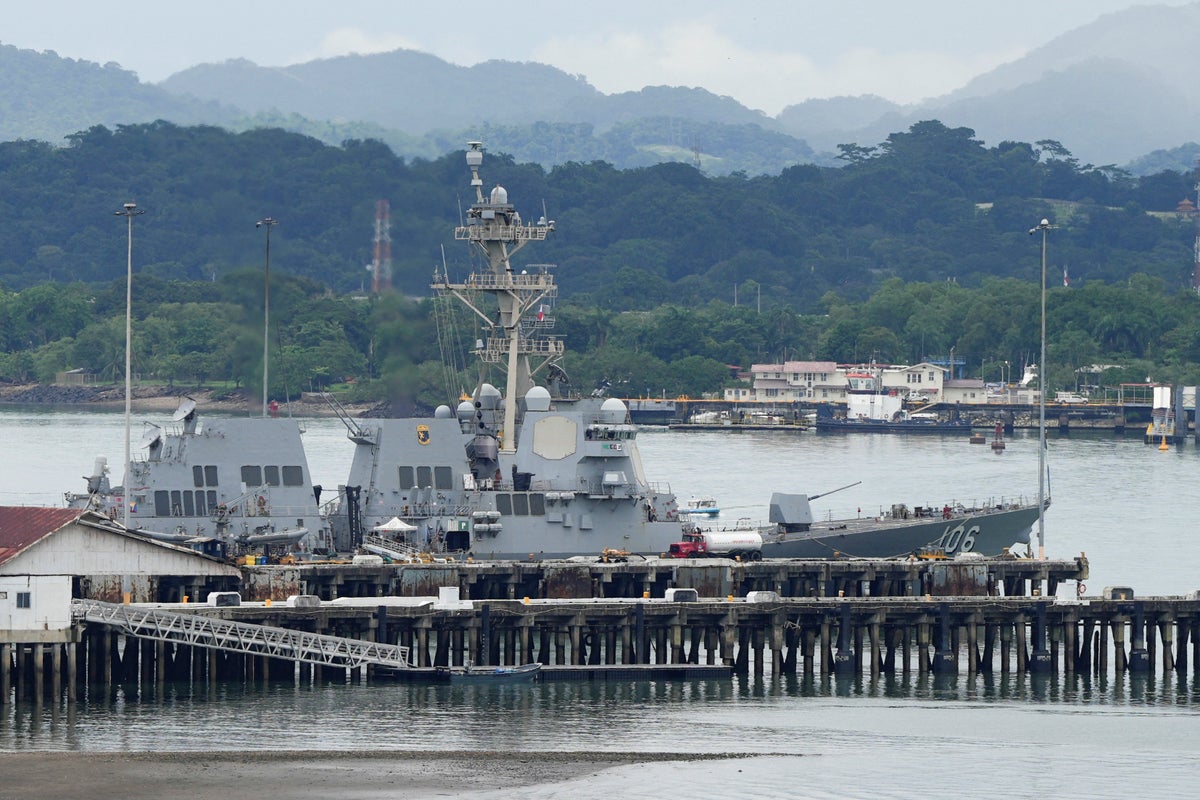
The U.S. Navy reportedly rescued and is now detaining two survivors of a Trump administration strike that occurred yesterday against alleged drug runners in the Caribbean.
A Navy search and rescue team was deployed following a strike Thursday on a semi-submersible vehicle which killed two people and left two survivors, two U.S. officials told The New York Times. The survivors are now in detention on a Navy ship in the region in international waters, the officials said.
The administration has acknowledged the strike, but has not commented on the alleged presence of survivors.
“We attacked a submarine and that was a drug-carrying submarine built specifically for the transportation of massive amounts of drugs,” the president said on Friday. “Just so you understand, this was not an innocent group of people. I don’t know too many people that have submarines.”
The Independent has contacted the Navy for comment.
The Pentagon declined to comment and directed questions to the White House, from which The Independent has also sought comment.
The reported detentions could prompt legal challenges for the U.S., including whether to hold the alleged survivors as indefinite wartime detainees or transfer them to military or criminal authorities for prosecution.
The latter options could open the strikes to legal scrutiny or expose the details that went into planning them, which have largely been kept out of the public eye so far.
“Though in theory there might be a case for military detention, I think in this instance the captives are likely to be turned over to law enforcement and, if the facts support doing so, processed with a view towards trial in civilian court on drug trafficking allegations,” Charles Dunlap, the former deputy judge advocate general of the Air Force, told The Washington Post of the U.S.’s options from here.
“The biggest issue today,” he added, “is the lack of transparency.”
Prior to Thursday’s attack, 27 people have been killed as part of the Trump administration’s recent anti-drug operation in the region, which the White House has controversially declared to be a formal armed conflict against drug cartels.
Details have been scarce about what intelligence the U.S. is using to conduct these strikes, and the names of those killed have not been released.
Chad Joseph, 26, of Trinidad and Tobago, may have been one of six people killed in a similar strike earlier this week, according to his family.
Joseph, a fisherman from the village of Las Cuevas, had been living in Venezuela in recent months. His family said he frequently made trips across the Caribbean in his work as a fisherman.
“I don’t want to believe that this is my child,” his mother, Lenore Burnley, told The New York Times. “Is this really true?”
Joseph’s family denies he is a drug trafficker.
The strikes have come in for bipartisan criticism from Congress, which has sole authority to declare war and hasn’t authorized any new hostilities in support of the Caribbean operation.
On Friday, a group of senators said they would force a vote to block the Trump administration from attacking Venezuela, which the White House accuses of working in coordination with drug cartels.
Admiral Alvin Hosley, the head of U.S. Southern Command, which is overseeing the strikes, will retire at year’s end, according to the Department of Defense, reportedly after Hosley expressed concern about the strikes.
Venezuela, whose citizens are thought to have been killed in prior strikes on the boats, has fiercely criticized the U.S. military buildup in the region and mobilized its own troops and militia forces.
Legal observers have warned the strikes may not be legal, despite the White House insisting the U.S. is formally engaged in an “armed conflict” with drug cartels that the president has labeled “unlawful combatants,” freeing up extraordinary wartime powers.
“All available evidence suggests that President Trump’s lethal strikes in the Caribbean constitute murder, pure and simple,”Jeffrey Stein, director of the ACLU’s National Security Project, said in a recent statement. “The public deserves to know how our government is justifying these attacks as lawful, and, given the stakes, immediate public scrutiny of its apparently radical theories is imperative.”
President Trump told reporters on Wednesday he has authorized CIA missions inside Venezuela as part of his anti-drug crackdown.
The president added that the U.S. was looking at land operations against Venezuela following the naval strikes.
The president claimed Friday Venezuelan leader Nicholas Maduro has offered overtures to lessen tensions in the region.
“He has offered everything,” Trump said, referring to Maduro. “You know why? Because he doesn’t want to f*** around with the United States.”
